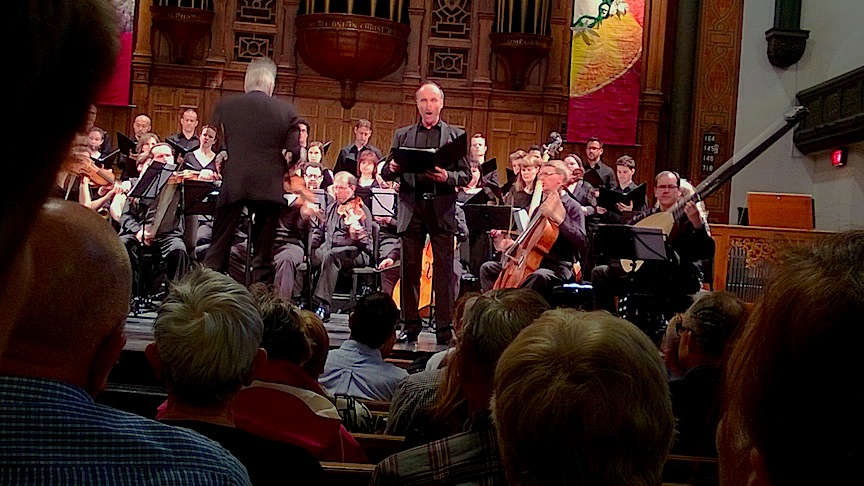
J.S. Bach may be the master musical craftsman of the Baroque, but George Frideric Handel is the composer who so often goes straight to the heart.
- Classical Music 101: What Does A Conductor Do? - June 17, 2019
- Classical Music 101 | What Does Period Instrument Mean? - May 6, 2019
- CLASSICAL MUSIC 101 | What Does It Mean To Be In Tune? - April 23, 2019
Tafelmusik exploited Handel’s dramatic gifts in a rich, beautifully layered programme running at Trinity-St Paul’s Centre this week, and George Weston Recital Hall next Tuesday.
The period-instrument orchestra, joined by the Tafelmusik Chamber Choir and conductor Ivars Taurins, constructed its Handel Celebration programme in two parts, each made to resemble the dramatic arc of an oratorio, with an optimistic opening, sombre middle and celebratory close.
The first half was oriented toward our relationship to a higher power. The second half was centred around love.
Regardless of sacred or secular orientation, Taurins had chosen choruses that each demonstrated a different aspect of Handel’s deep craft and musical resourcefulness, from the pizzicato strings to do with the tenor air, “Tune your harp,” from Esther, to the rustic-dance chorus “Crown with festal pomp,” from Hercules.
Taurins has spent the past generation getting the maximum of expressiveness out of his choristers, and, judging from Thursday night’s performance, appears to have reached a new apogee of dynamic range. There were times the Chamber Choir was almost obnoxiously loud in the relatively intimate concert space.
The orchestra played beautifully, and Taurins managed to tease a lot of interesting colours out of this group, as well.
But the two soloists were a bit of a disappointment, not because there was anything wrong with what they were doing, but because they were simply not expressing their airs in the same way as the chorus or, for that matter, each other.
One would assume that Taurins expects his soloists to bring the same extended dynamic range and dramatic turn of phrasing and emphasis as the other singers on stage. Tenor Rufus Müller, a regular guest, came closest to this ideal, but Sophie Daneman was a different story.
The soprano has a sweet, small voice that was totally outclassed by everyone on stage, and she sang for beauty rather than dramatic impact. She also had a tendency all evening long to swallow vowels, making her airs hard to understand without reaching for the printed text.
In my head, I tallied a half-dozen Toronto-resident sopranos who could have done better.
There is a lot of fine music by a master composer on this programme, making this a satisfying outing. But an extra layer of consistency in the singing would have helped raise this to one of the season’s special events.
For all the programme and performance details, click here.
+++
An orchestra member approached me as I sat at Trinity-St Paul’s writing my Toronto Star review after the concert, and asked if I knew what the word sequacious meant.
It shows up in Song for St Cecilia’s Day: “Orpheus could lead the savage race:/ and trees, unrooted, left their place; sequacious of the lyre.”
One simply has to use context and (word) roots to figure out that it must mean “following.”
My favourite word from the texts supplied in the printed programme was for the famous soprano aria “Let the bright seraphim,” from Samson. It belongs to an “Israelitish” woman. That’s a mouthful.
John Terauds
- Classical Music 101: What Does A Conductor Do? - June 17, 2019
- Classical Music 101 | What Does Period Instrument Mean? - May 6, 2019
- CLASSICAL MUSIC 101 | What Does It Mean To Be In Tune? - April 23, 2019



